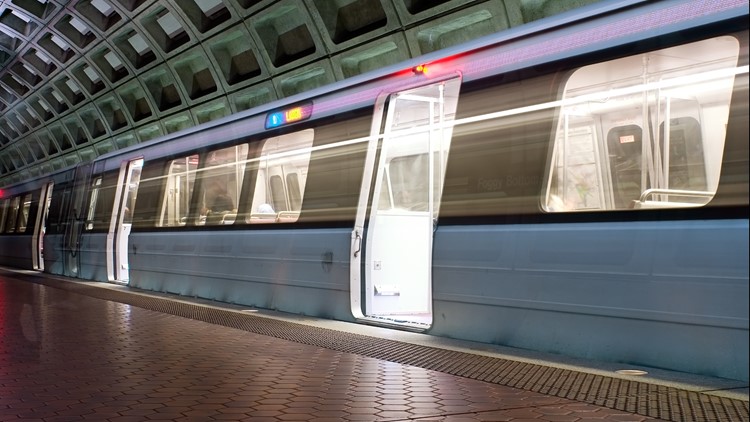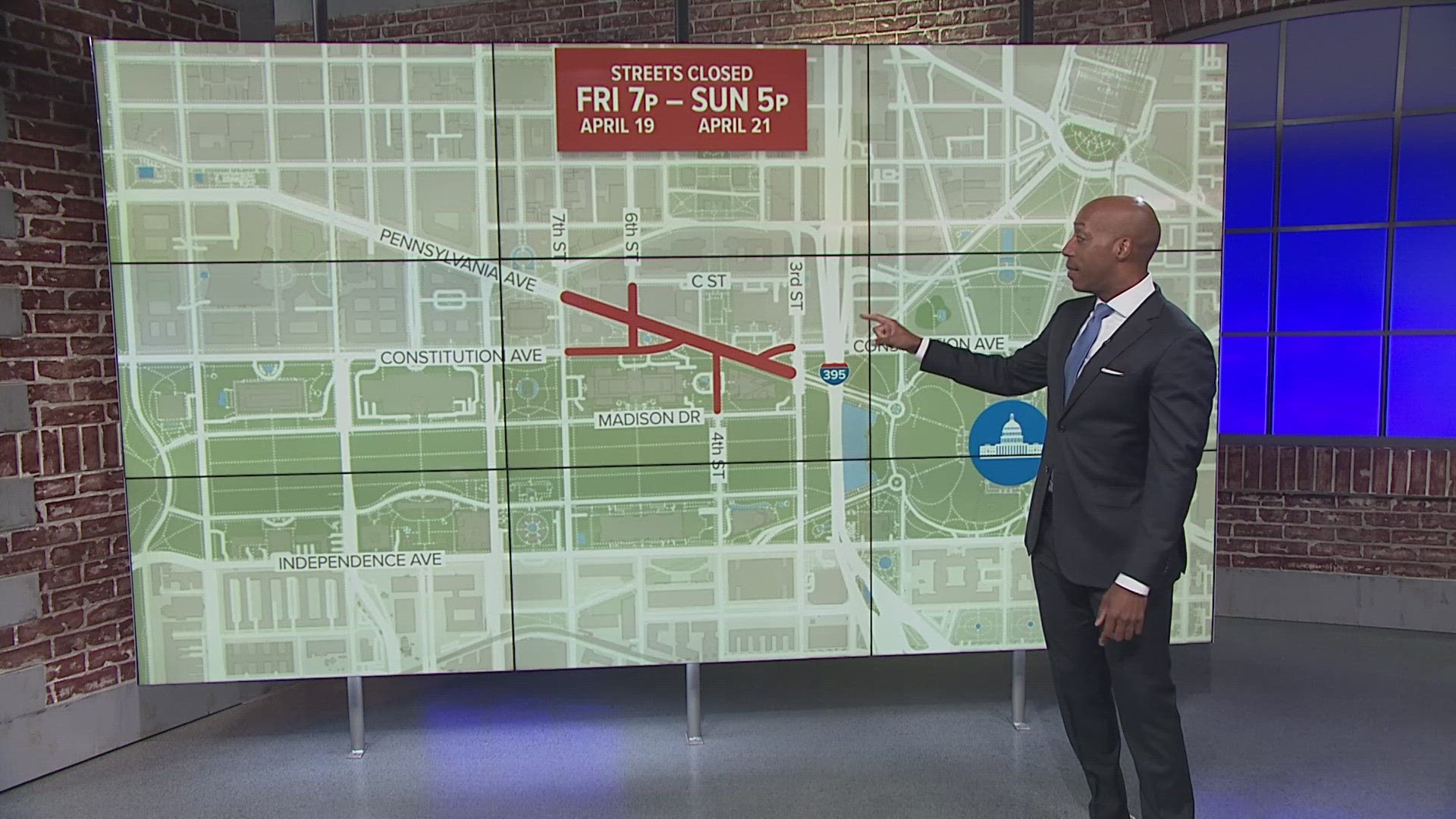FORESTVILLE, Md. (AP/WUSA9) — A showdown looms in Washington now that Metro's largest union has overwhelmingly authorized a potential transit system strike, just as thousands of tourists arrive in the nation's capital for this week's Major League Baseball All-Star Game.
Striking is forbidden under Metro's bargaining agreement with the union, but even a brief interruption could disrupt a system that carries about a million people a day.
Union leaders said they would wait on Monday's expected response from Metro's management after Sunday's vote authorizing a strike, which comes as frustration mounts after years without a new contract.
The Amalgamated Transit Union represents around 8,000 of Metro's 12,500 active workers, who have been working without a new contract since July 2016. Local 689 President Jackie L. Jeter says 94 percent of voters approved the potential strike.
"We will decide the when and where and how," Jeter said at a news conference Sunday night. "We have to call a meeting of the executive board after this vote, and then we'll decide on what we're going to do."
Because Metro workers are forbidden from striking under the system's governing compact, a judge or arbitrator could order an end to any strike and penalize those who do not comply.
"We understand the ramifications of what we're asking our members, we understand what a strike would mean," said Jeter.
Even a brief work stoppage could cause commuting chaos, particularly as thousands of visitors try to get around Monday and Tuesday nights for events surrounding the All-Star game.
Carroll Thomas, the union's first vice president, put it this way: "If we don't move, this region doesn't move."
RELATED: Metro labor dispute causes delays
The strike authorization vote followed coordinated "late-out" demonstrations on July 4 and Thursday, in which some workers showed up late for their scheduled shifts, delaying services.
Both sides traded barbs after these actions, which were meant to send a message to Metro management about stalled contract negotiations, job cuts, privatization, duty reassignments and other issues. Metro then threatened to discipline anyone who showed up late again, and Jeter said suspending a single worker for missing a shift would prompt the entire union workforce to take a 3-day suspension.
According to The Washington Post, Metro Chief Labor Relations Officer John M. Gilman reminded Jeter in an email that the union is prohibited from organizing collective service disruptions.
"We demand that Local 689 cease and desist from any further illegal action and that you immediately instruct your members to arrive on time for work and to comply with all standard operating procedures," his email said.
Since Metro General Manager Paul J. Wiedefeld took over the transit system in November 2015, union members have held regular demonstrations at Metro board meetings, voicing their opposition to cuts to jobs and open positions, fare increases, service cuts and a shift toward private contractors over union workers. The agency faces chronic safety and reliability issues, driving down ridership. The resulting revenue losses triggered fare increases and cutbacks in service.
Forty years have passed since the last Metro workers' strike, a weeklong "wildcat strike," a strike without union leadership authorization, in 1978 that disrupted commutes across the region.
Metro released the following statement Monday:
"This year, the region gave Metro dedicated funding to repair and rebuild its system with a mandate to slow cost growth for operating buses and trains.. Since 2010, the region’s share of costs for bus and rail operations has grown about 8 percent a year at a time when revenues have been flat. Add to this the $2.8 billion in unfunded pension and health benefits for future retirees, and the Authority’s financial structure is not sustainable.
"The General Manager’s approach is two-fold: increase revenue through better service while reducing cost growth by operating more efficiently. The plan would protect current employees, preserving their jobs and their pensions.
"The Authority does not want customers to suffer from additional service interruptions. Dialogue is ongoing between Management and Union officials to identify common ground on these matters, while keeping Metro safe, reliable and affordable for the region."
The WMATA Board of Directors also released a statement Monday:
"First and foremost, it is important to keep the customers in mind—those who rely on Metro service every day, who support the regional economy and our federal government. To ensure that Metro is always there for the millions who rely on us, the region has made a commitment to increase capital investment in Metro with the understanding that a similar commitment be made by Metro to tackle tough issues, including solving growing costs. The General Manager and his team are working to make these difficult decisions while also protecting current employees. We must find solutions together by continuing to talk and listen, as Chairman Evans recently did in a meeting with union leadership. The collective bargaining process is the appropriate and legal path to finding solutions."



